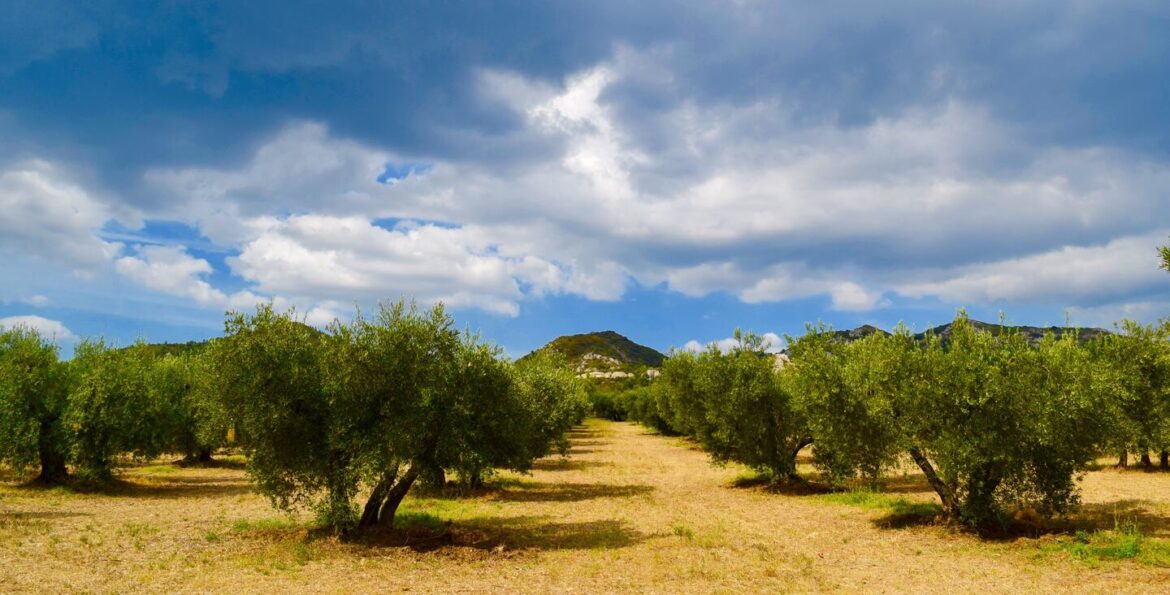FONTVIEILLE, France — There is no bread involved when tasting olive oil at Anne Sourdon and Magali Martinez’s small olive mill located in a remote village in Provence. Instead, each round of the golden oil is served on a petite spoon, which allows individual, delicate flavors to be savored without starch getting in the way.
Martinez takes great pride in the fact that she and her sister create these combinations by carefully choosing olives from their orchard. It’s not unlike producing wine. Martinez has a gift for plucking different varieties of olives and pressing them at various stages of ripeness.
“Here you imagine all of the flavors,” she says, pouring out another small spoonful. “I use a net. I pick by hand because I want the right selection. We know there is industrialization. But we refuse.”
It’s easy to overlook supermarket olive oil. It’s what we use to cook with at home. It’s used to coat bread while we impatiently wait for dinner at restaurants. For most of us it never receives top billing. But Martinez and her sister create olive oil works of art at Moulin à Huile du Mas Saint Jean — that’s the name of the family business — which have remarkably different and subtle flavors. One tastes a bit like almond, another has hints of apple, and another is deliciously buttery. It’s a process they’ve perfected since taking over the family orchards in 1998.
But the olive oil lineage goes back much farther than the sisters — about 10 generations. Their family has tended the same land since the 18th Century with about 3,000 trees. Their grandfather, a true traditionalist, used an ancient stone olive press well into the 1990s, refusing to adapt to modern methods.
“When I press, it’s wonderful,” Martinez said. “I love that moment. It’s like when you make a perfume. It’s an art. When you have a passion for something, it’s an art.”
Olive oil production is a rarity in France. Only two percent of the world’s supply comes from here. Nearly all of France’s olives are grown in the southwestern part of the country, which has an arid Mediterranean climate not unlike Greece or Italy. The oils produced at Moulin à Huile du Mas Saint Jean are so well regarded that they are used by Michelin-starred chefs in France.
The olive oil isn’t the only reason to come to the farm. Martinez and her sister will lead you through the orchards and to the family’s minimalist 11th century Romanesque chapel while their dog attempts to follow along. It’s a serene, peaceful spot not far from Arles.
At the end of the tasting and tour, there is the obligatory stop in the gift shop, but in the case of Moulin à Huile du Mas Saint Jean, the rare oils are hard to resist. It feels criminal to dip your bread in anything else once you’ve tasted the sisters’ agricultural handiwork.
Moulin à Huile du Mas Saint Jean offers tours and cooking classes. Find out more at www.moulin-saintjean.com.
Christopher Muther can be reached at muther@globe.com. Follow him on Twitter @Chris_Muther

